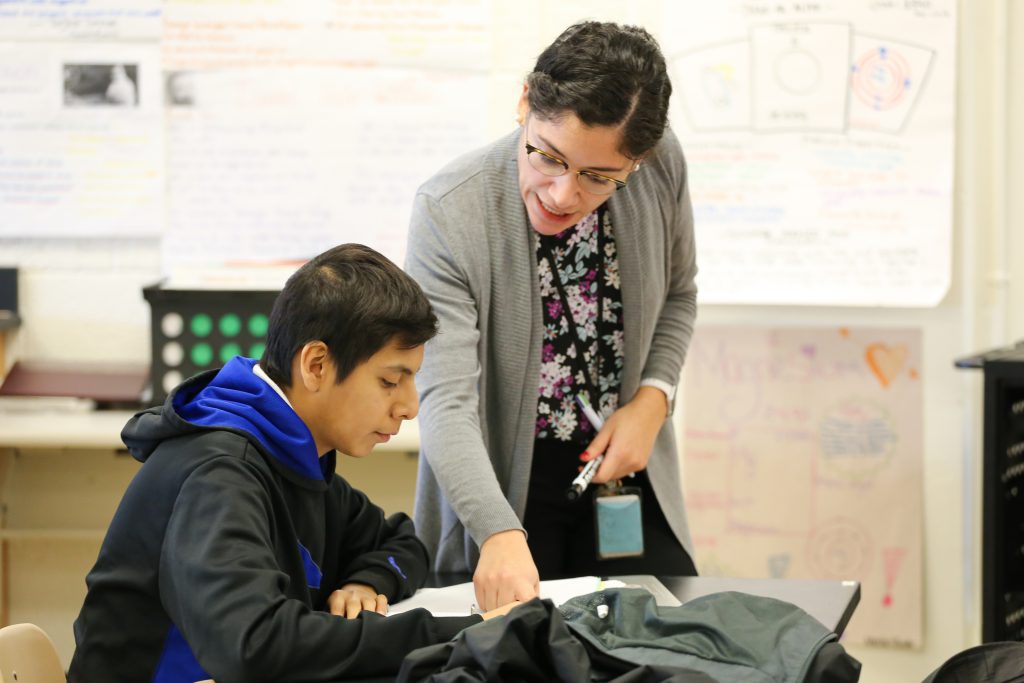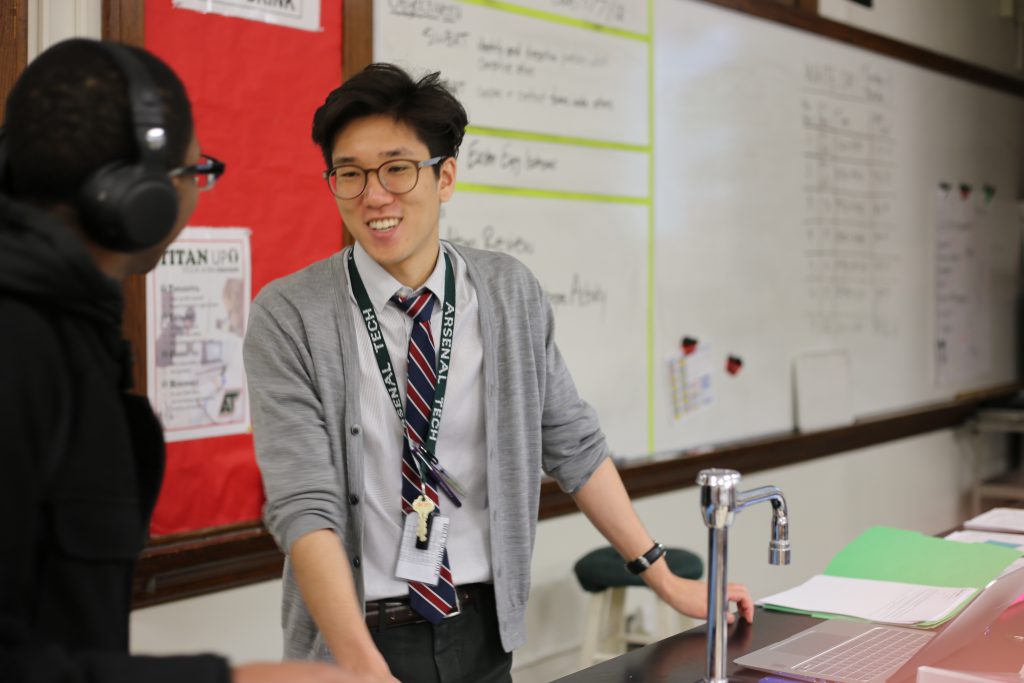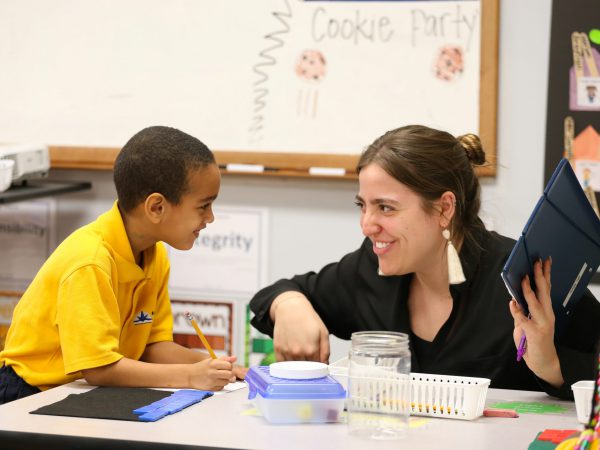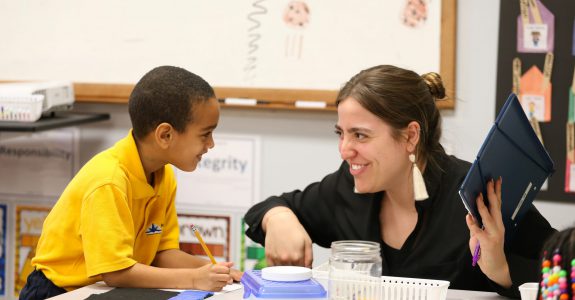Ellen Quigley is the Vice President of Programs at the Richard M. Fairbanks Foundation
An interview with Amar Patel, Executive Director, Teach For America Indianapolis (TFA)
Background
TFA has a vision that all Indianapolis children will lead lives of their choosing and collectively contribute to a more vibrant and just city. As a leadership development institution, TFA seeks to develop collective leadership for educational equity, excellence, and broader systems change – in its students and its corps members. Annually, TFA recruits over 60 diverse individuals as corps members who commit to teach for two years in an Indianapolis public school. Nearly 40% identify as people of color and 85% relocate from outside Indiana. In partnership with schools, TFA provides corps members with training, ongoing professional development, and access to an unparalleled resource and support network.
Since 2009, the Richard M. Fairbanks Foundation has awarded grants to TFA totaling $5,074,200.

Amar, what motivated TFA to come to Indianapolis?
TFA expanded to Indianapolis in 2008 as a critical source of leadership talent for a growing education reform movement in our community. We came to Indianapolis with the belief that our mission and commitment to equitable access to education would contribute to a vibrant and more just city.
Informed and inspired by their students, most corps members choose to remain in Indianapolis beyond their two-year commitment and many have helped shape and lead positive education innovations that have contributed to our state and city’s progress over time – leading in schools, school systems, and every sector and field that shapes education policy and practice. For instance, we have grown from fewer than 100 to over 700 alumni in the area and today, nearly 15% of school principals in Center Township public schools are TFA alums.

Please share an example of how TFA’s program is impacting corps members and their students.
In the 2018-2019 school year, the majority of our corps members helped students achieve at least one year of academic growth, while one in four led their students to over 1 ½ years of growth. In addition to pursuing rigorous academic goals, our members work alongside students to expand their self-advocacy skills, develop social capital through relationships with others, and inspire students’ leadership that will endure throughout their lives.
This summer we welcomed several new corps members who are graduates of Indianapolis schools, including Melissa Horn who was taught by ten TFA corps members while attending Indianapolis Metropolitan High School. Melissa shares about her TFA teachers, “They all had high expectations and care for me. I went to college because of them. I’m back home and joined TFA because of them. And I’m now committed to making educational excellence and equity a reality for all children in my city.” Our students joining and shaping our efforts is perhaps the strongest evidence of our mission’s impact and is essential as we move forward in reshaping our education system and city.
What are a few of the lessons learned from the work in Indianapolis so far?
- We have made significant progress in education in Indianapolis over the past decade. More than ever before, children of color and those from low-income backgrounds have increased opportunities to pursue meaningful choices beyond high school. Progress has been made, and we do well as a city by learning from these successes and the efforts that drove them.
- However, our education system was built over a century ago and was never designed to deliver equity and excellence for all, particularly for low-income children and children of color. As we build on lessons of progress, we must also reimagine systems to realize our intentions. This effort will take many interventions from many directions over a sustained period of time.
Tagged in: Education, Ellen Quigley, Improving Education Outcomes, Indianapolis, K-12, Teach For America



